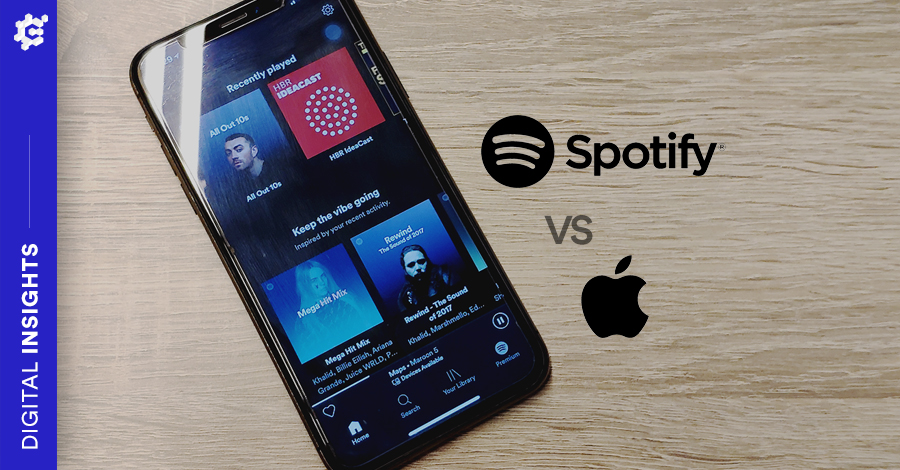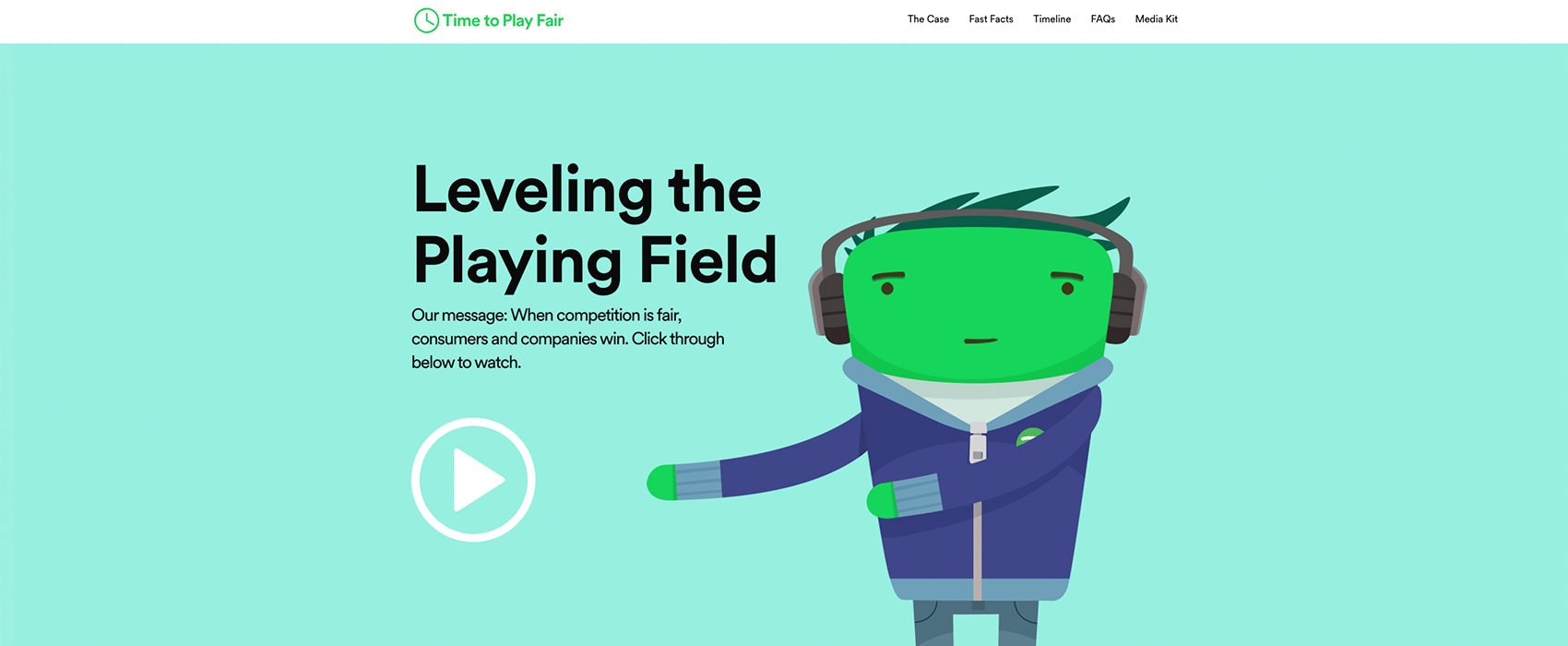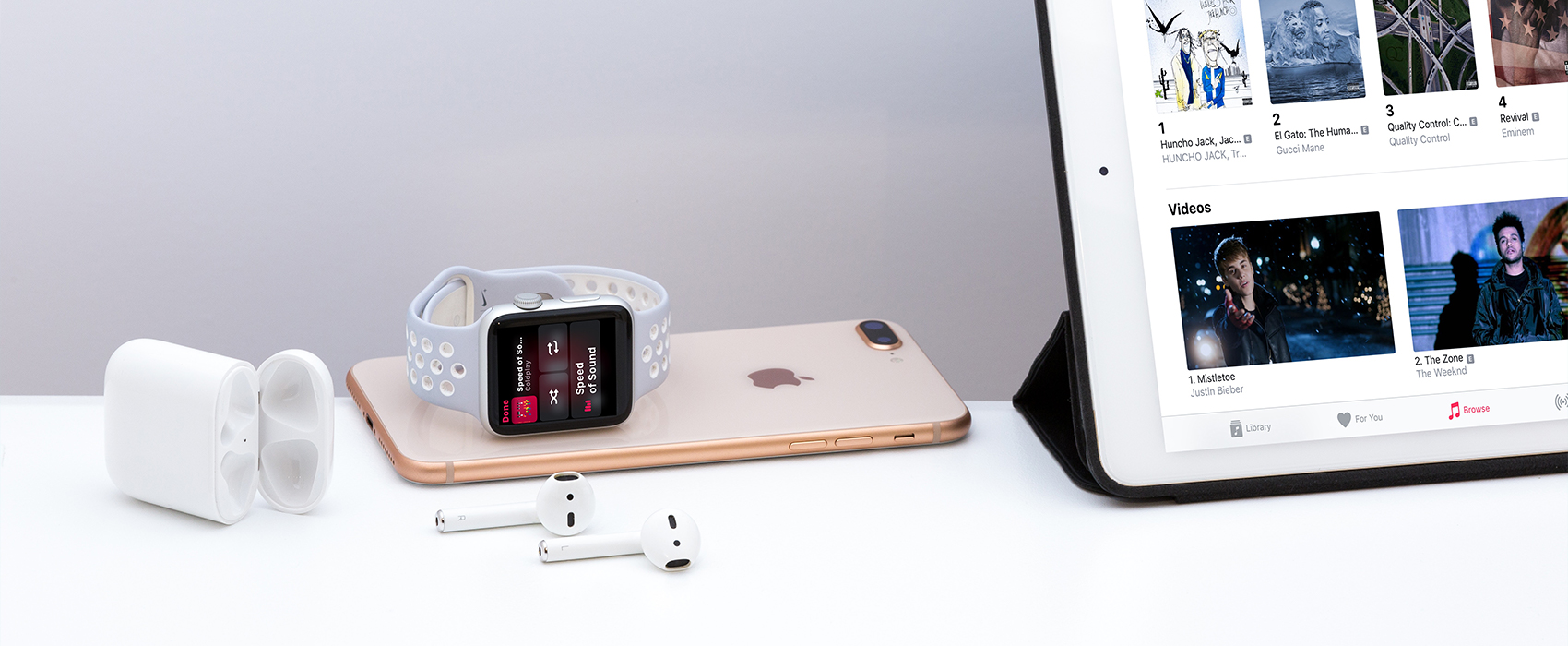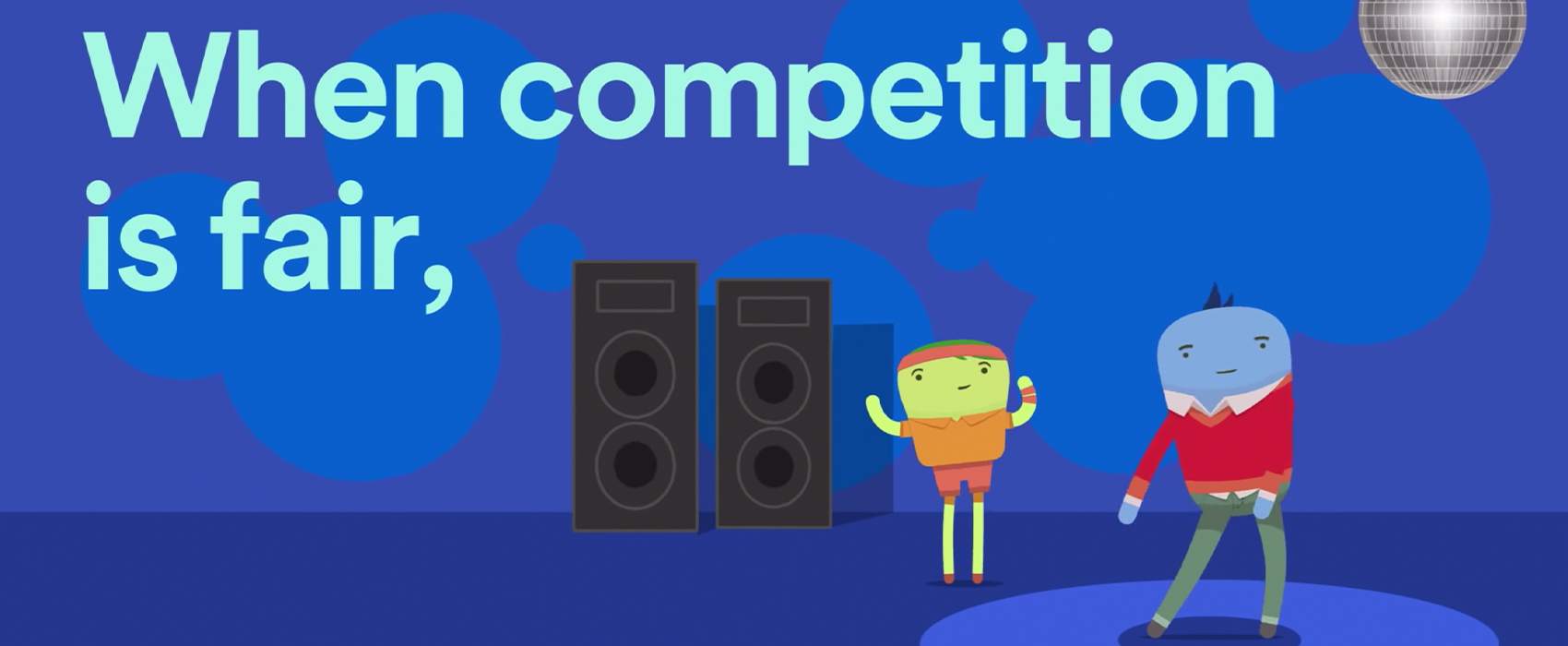

Spotify Leverages Their User Base In Fight Against Apple App Store Charges, and Apple's Response to "Time To Play Fair"


So you've probably already seen Apple announce new subscription services yesterday, expanding their portfolio of services into digital publishing (via Apple News Plus), finance (via Apple Card), gaming (via Apple Arcade) and entertainment programming (via Apple TV Plus). Buried beneath that hype was a fiasco that unfolded just two weeks before.
Spotify filed a complaint with the European Commission over what they perceived as "unfair business practices" on Apple’s part. At the same time, Spotify launched a brand new website and a video titled "Time To Play Fair" to communicate their points and their version of events, effectively attempting to pit their user base against Apple in a bid to win in the court of public opinion.
Spotify's video can be seen here:
In response, Apple then issued an official statement on the matter, explaining the rationale behind Apple’s stance in the matter, as well as highlighting the inconsistency between Spotify’s proclaimed stance and their own "predatory" business behaviours.
Spotify claims that Apple stifles competition with unfair business practices, with a consumer-friendly video explainer.
 Screengrab from https://timetoplayfair.com by Spotify
Screengrab from https://timetoplayfair.com by Spotify
According to Spotify, Apple has been using their control over the Apple devices’ ecosystem to give their own streaming service, Apple Music, an unfair advantage.
They accused Apple of arbitrarily changing rules for their competitors; of rejecting bug fixes and app updates submitted by Spotify unreasonably; and of hindering Spotify’s attempts to be on new Apple devices, such as the HomePod.
A key component of Spotify’s argument, however, relates to how Spotify feels pressured to adopt Apple’s In-App Payment system - they are unwilling to pay the 30% commission that Apple charges for using the payment service.
Spotify then puts forth a series of what they perceive as unfairly restrictive rules are imposed when they refuse to adopt the payment system. These included barring Spotify from sharing their deals and promotions in-app, or even through email for users who registered via the app - effectively stifling their ability to fairly compete with Apple's own competing service.
Apple responds with a strongly-worded press release, leveraging PR to weaken Spotify's claims.

Apple issued an official statement one day later in response to Spotify’s accusations. Apple frames Spotify’s demands as a money-grabbing tactic, by highlighting Spotify’s own troubles with the music creators on the platform.
In contrast, Apple framed themselves and their services, including Apple Music and the App Store, as allies of the creators for both music and apps alike. By extension, Spotify’s refusal to pay the 30% commission is a refusal to contribute to these “fair” ecosystems that reward creators fairly.
Throughout the statement, Apple stood by their policies and explained the rationale behind the policies, such as highlighting the types of apps that use the App Store for free, and that it only charges the fee to apps that “provide digital goods and services that are purchased inside the app” using their “secure in-app purchase system”.
Apple also highlighted that Spotify makes the majority of their revenue from sources outside of the In-App Payment System that Apple provides, possibly to reinforce the money-grabbing image that Apple has created for Spotify.
Apply VS Spotify: The War For Public Opinion.

So, who's 'winning?' Well, it depends on who you ask.
Many points of the argument from both music giants fall under the ‘he said, she said’, and cannot be verified by the public easily.
With the recent decision by Spotify to appeal the US Copyright Royalty Board, coupled with the overwhelmingly financial nature of Spotify’s case against Apple, seems to have backfired, and working against Spotify in terms of public sentiment.
Despite the snazzy video and website, meant to educate public perception in their favour, the tides after the initial wave of support from users, seems to be turning. Especially after Apple's strong statement.
That said, Apple's statement is not entirely without fault, with slight inaccuracy in its word choice - Spotify appealed in the case and did not actually sue the music creators.This, however, is a comparatively minor misstep that is largely overlooked by the masses, in light of the greater inconsistencies Spotify has displayed in their stance.
Social Justice is a double-edged sword.
 Screengrab from Spotify's Youtube Video
Screengrab from Spotify's Youtube Video
Consumers have certain expectations of businesses they support, beyond that of mere goods and services. Increasingly, users expect businesses to align with their own moral compasses and values, to earn their patronage. With this in mind, companies are increasingly using public ‘ethical’ perception to move their agendas with social leverage.
While this is commonly done now in marketing, branding and PR, this particular case between Spotify and Apple is a good example of how important it is for brands to align their messaging with what they are actually doing.
What Spotify is trying to do here is to sway the public’s sense of “social justice” to their advantage, and in turn lobby and pressure Apple to give in to Spotify’s demands, and perhaps for the case to be ruled in their favour eventually.
What Spotify failed to do though, is to ensure that the public sees them as fair players before using "fairness" as the cornerstone of their public perception campaign.
The first shots have already been fired. Whether Spotify (and potentially Apple) comes out of this war unscathed will largely depend on the nature of any new information the European Union may uncover, and how they continue to handle public perceptions on the ethics of their business practices.
Our take? First round goes to Apple.
More insights
